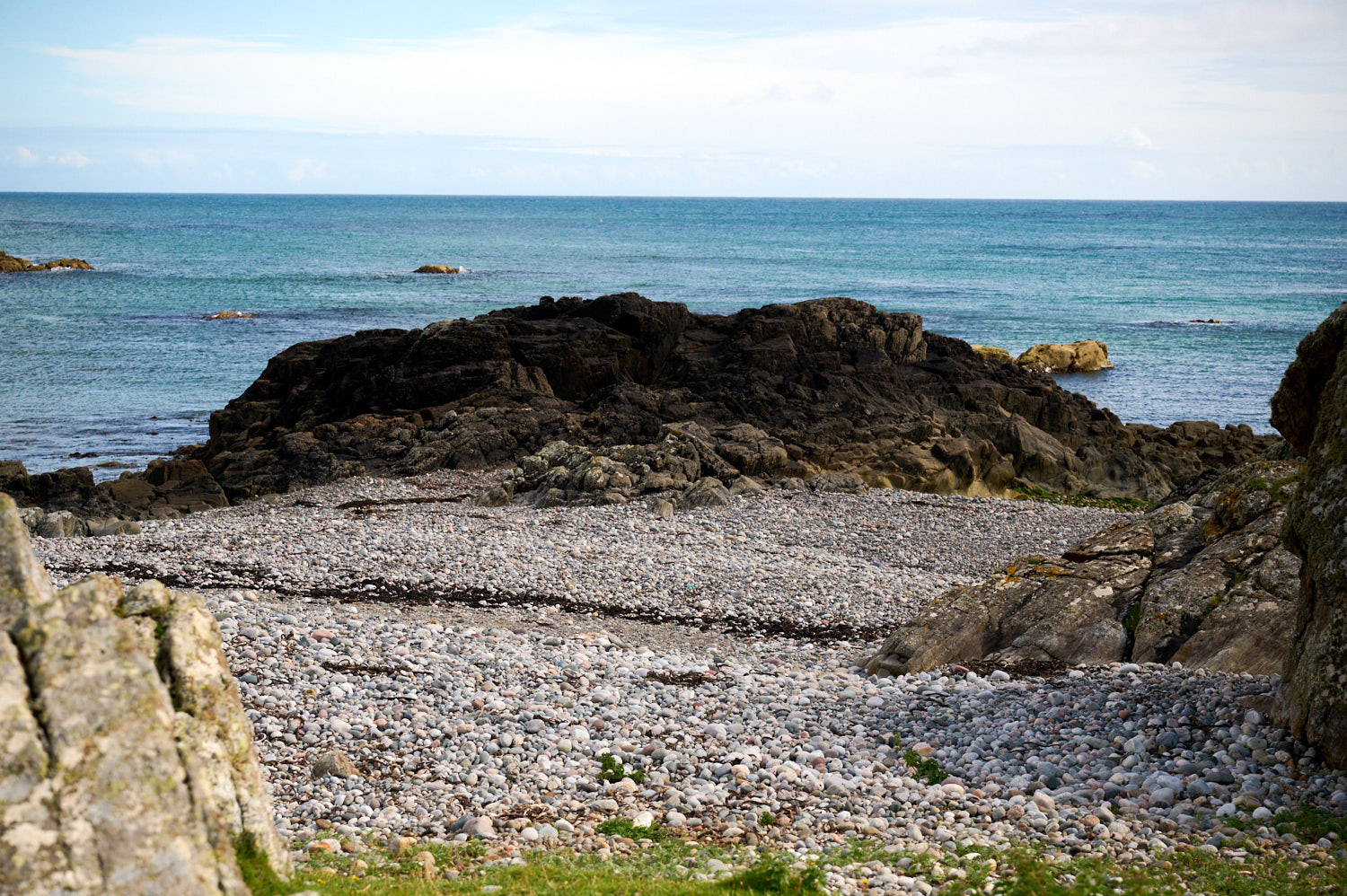
After visiting the museum in Hynish, I went for a little walk along the coast and then back to Hynish (and my car).
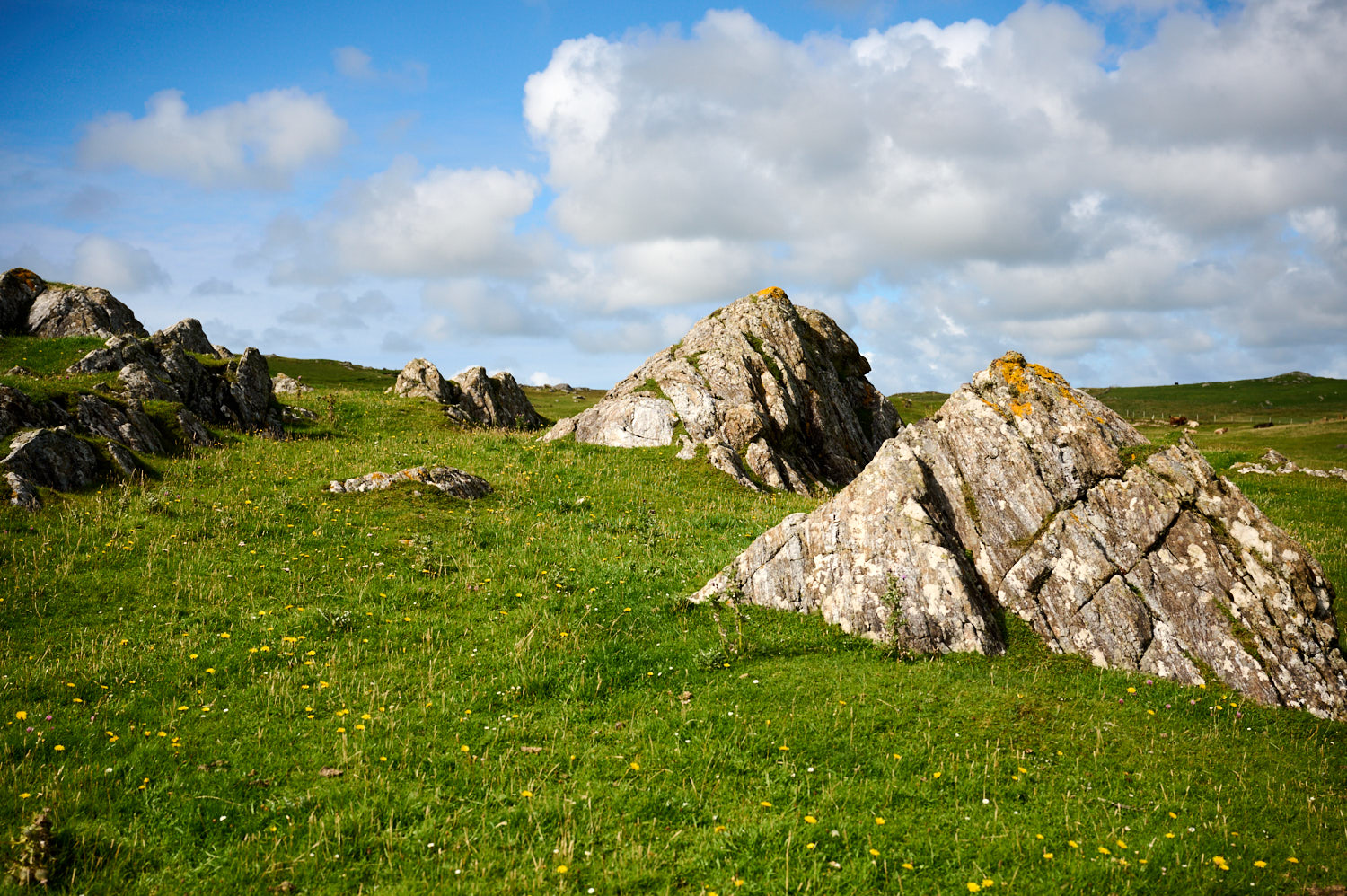
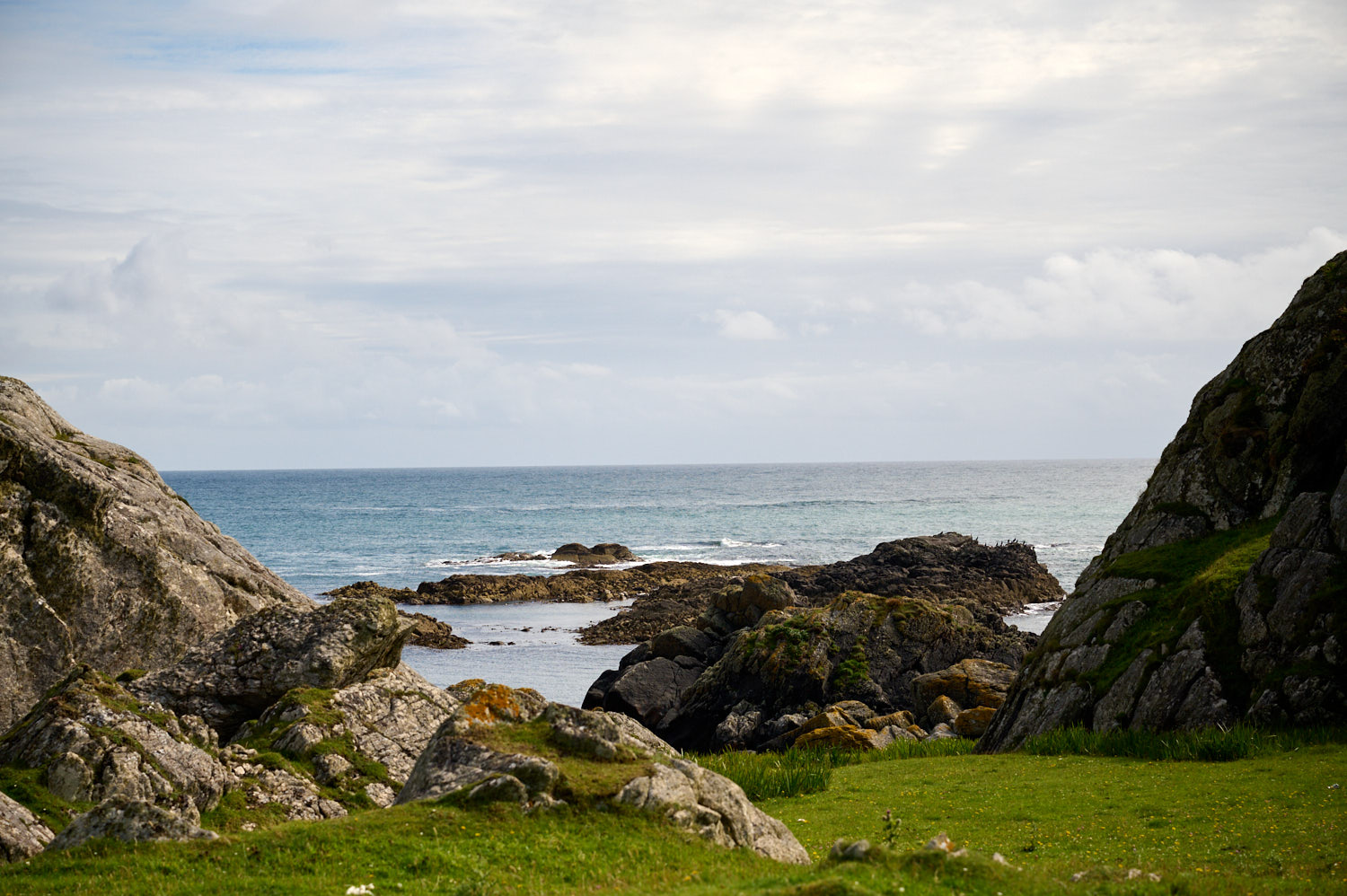
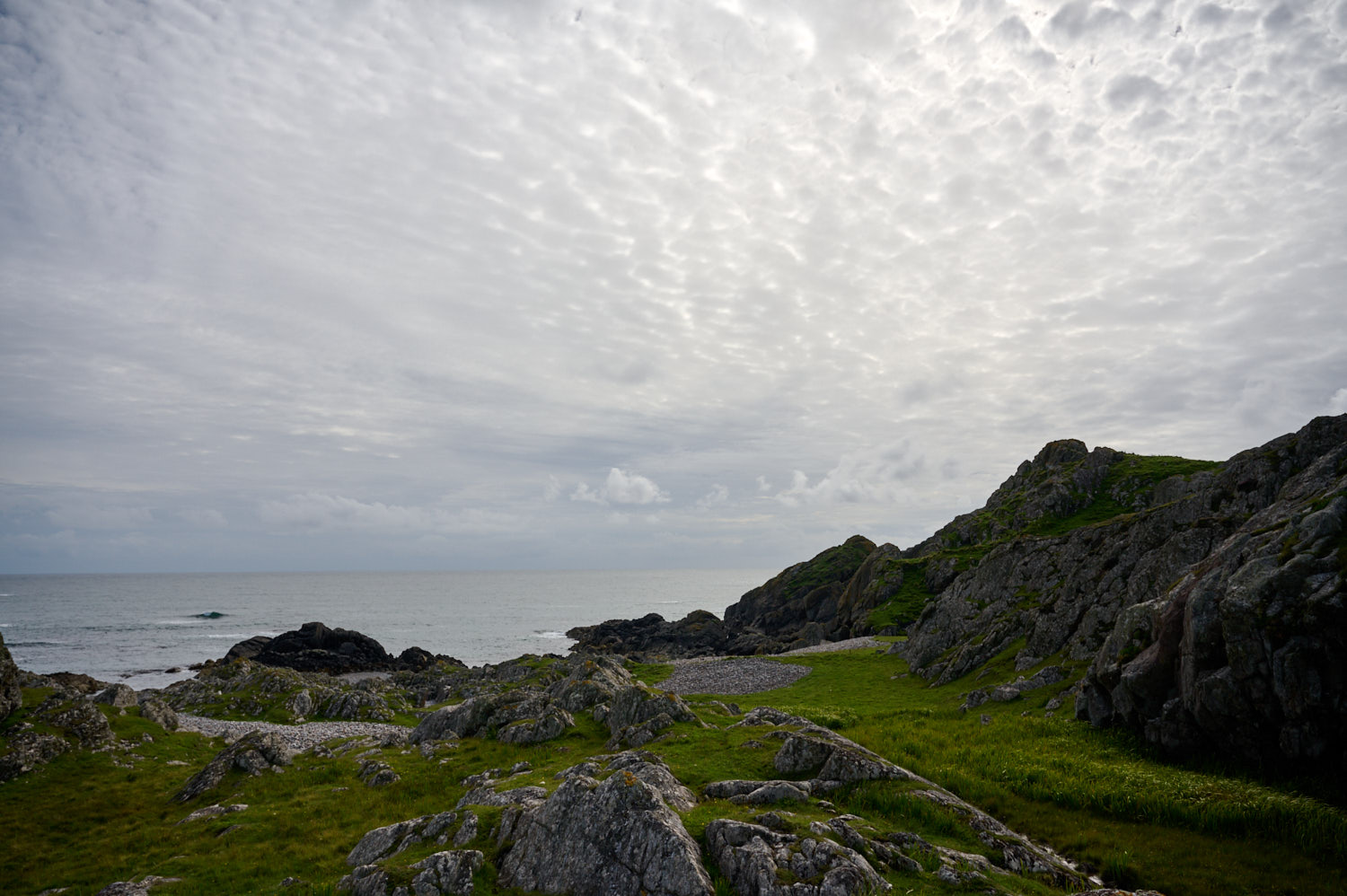
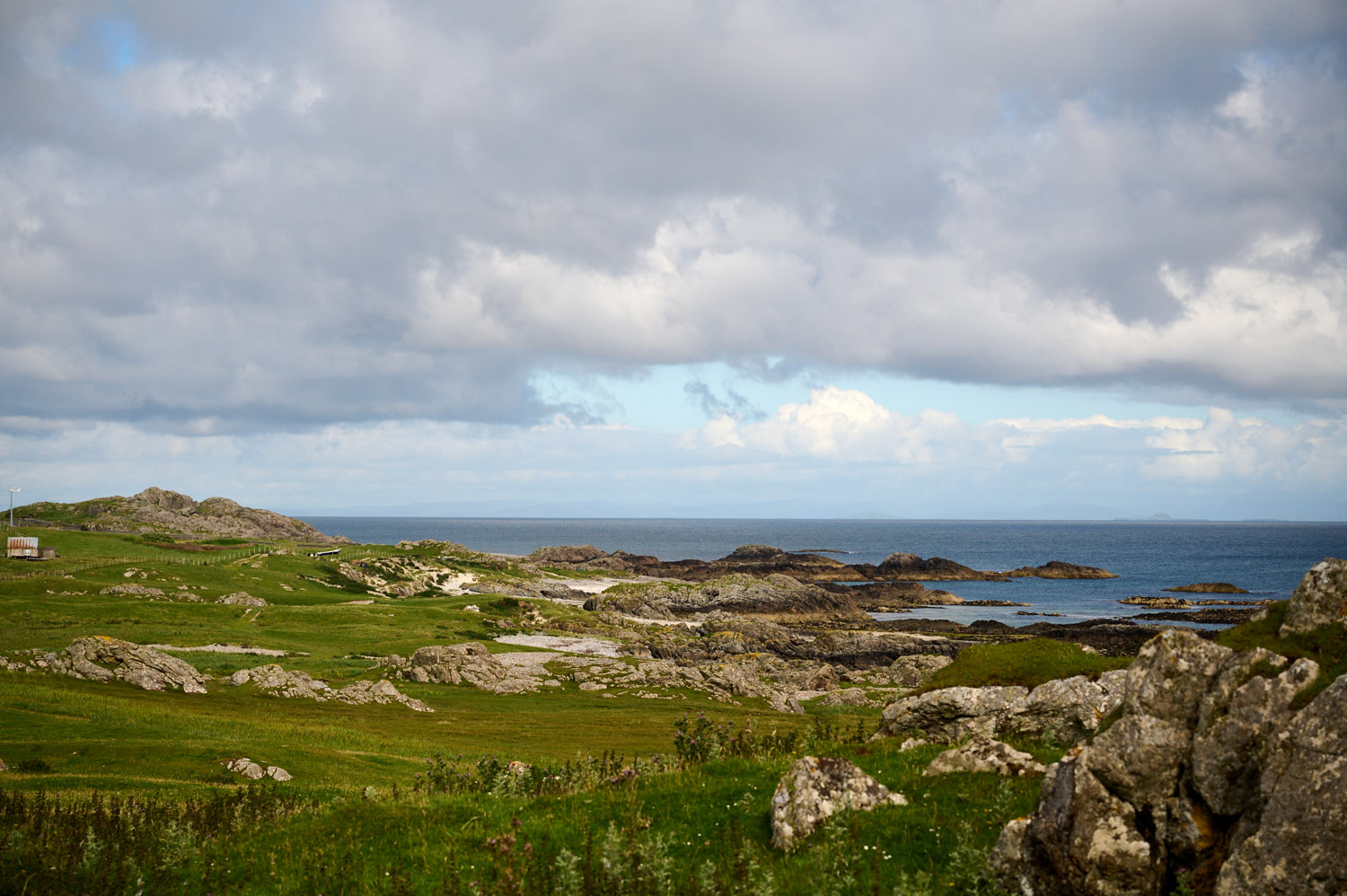
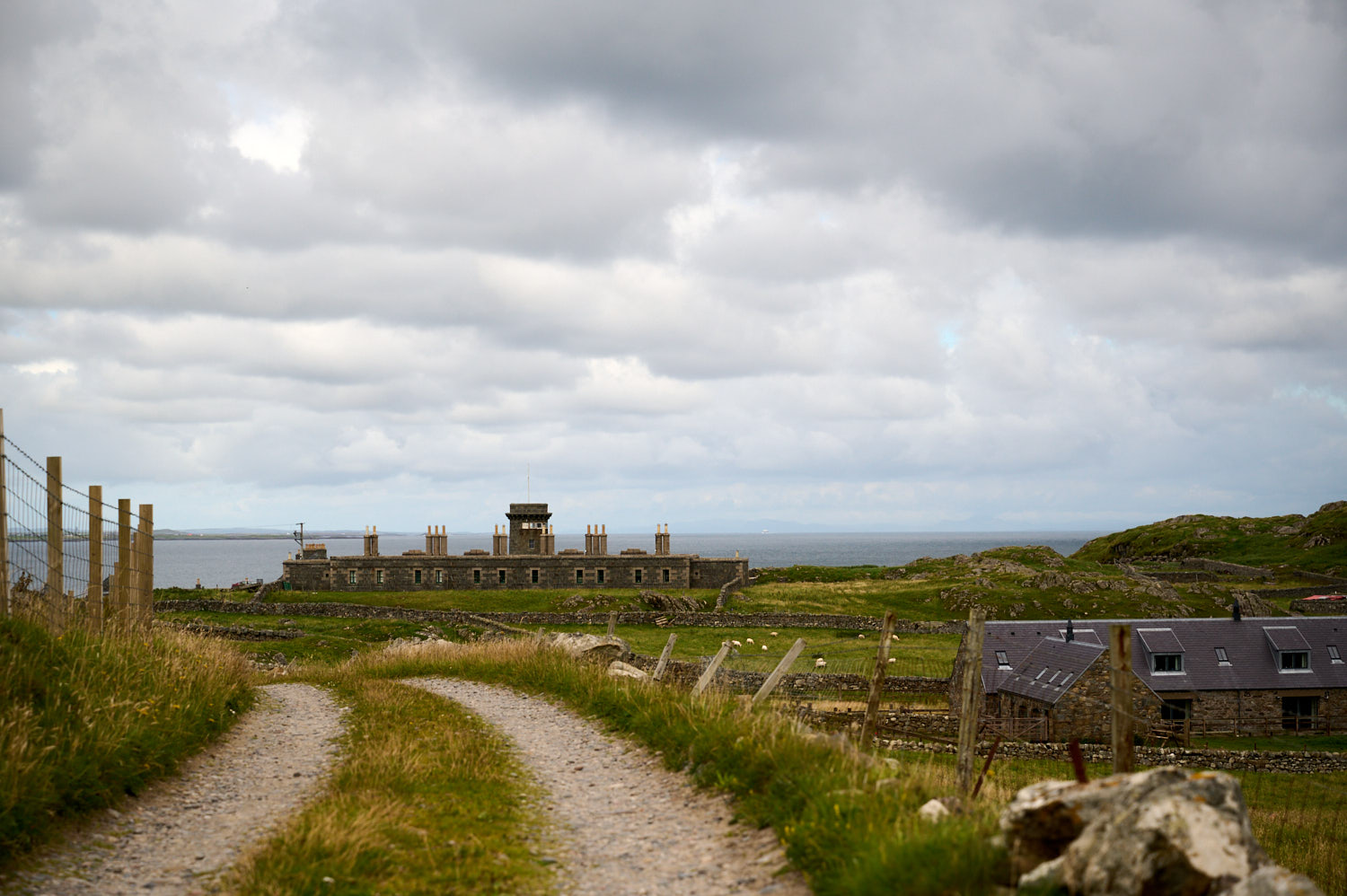
And back to the signal tower and the buildings of Hynish.
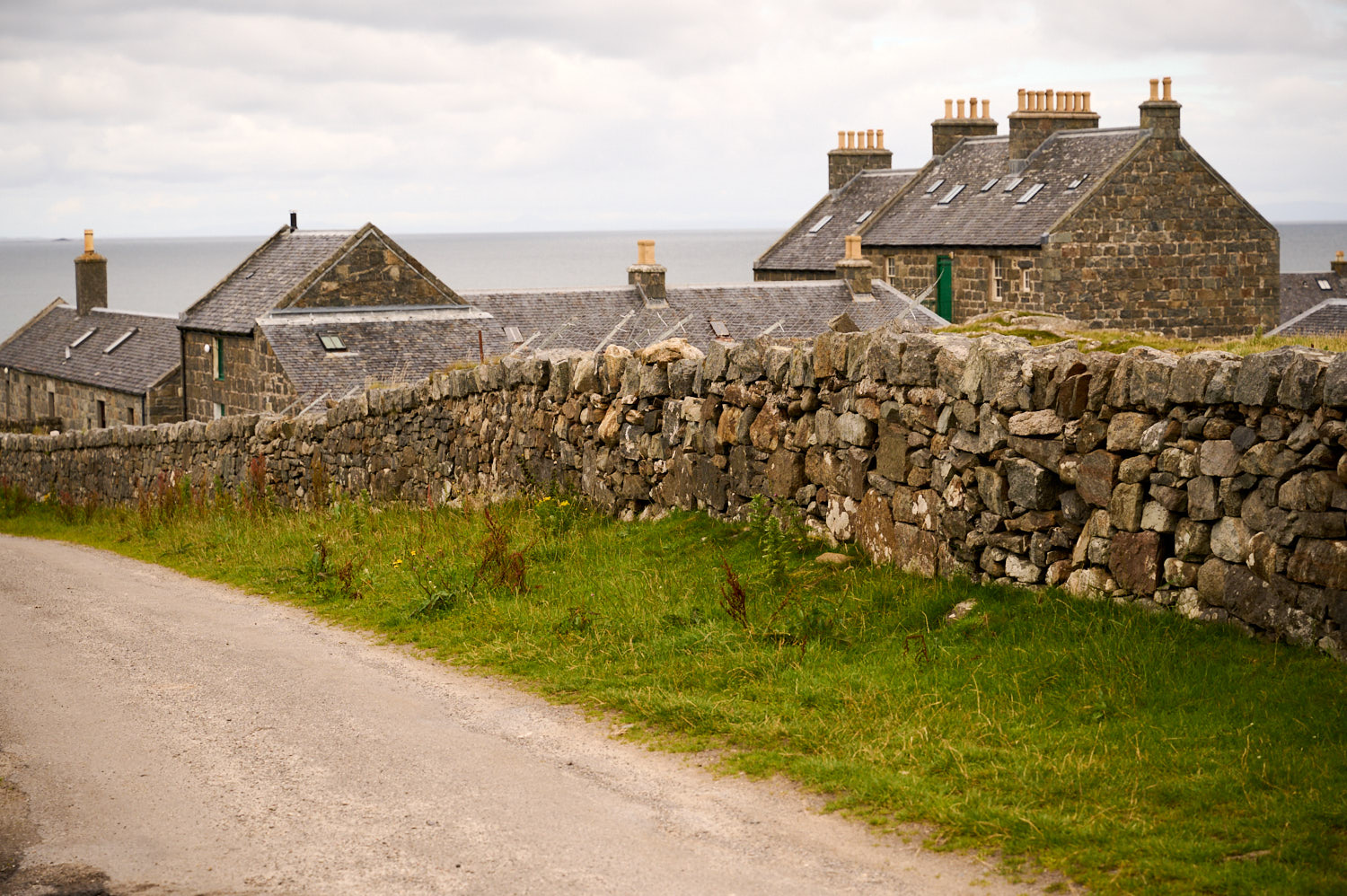
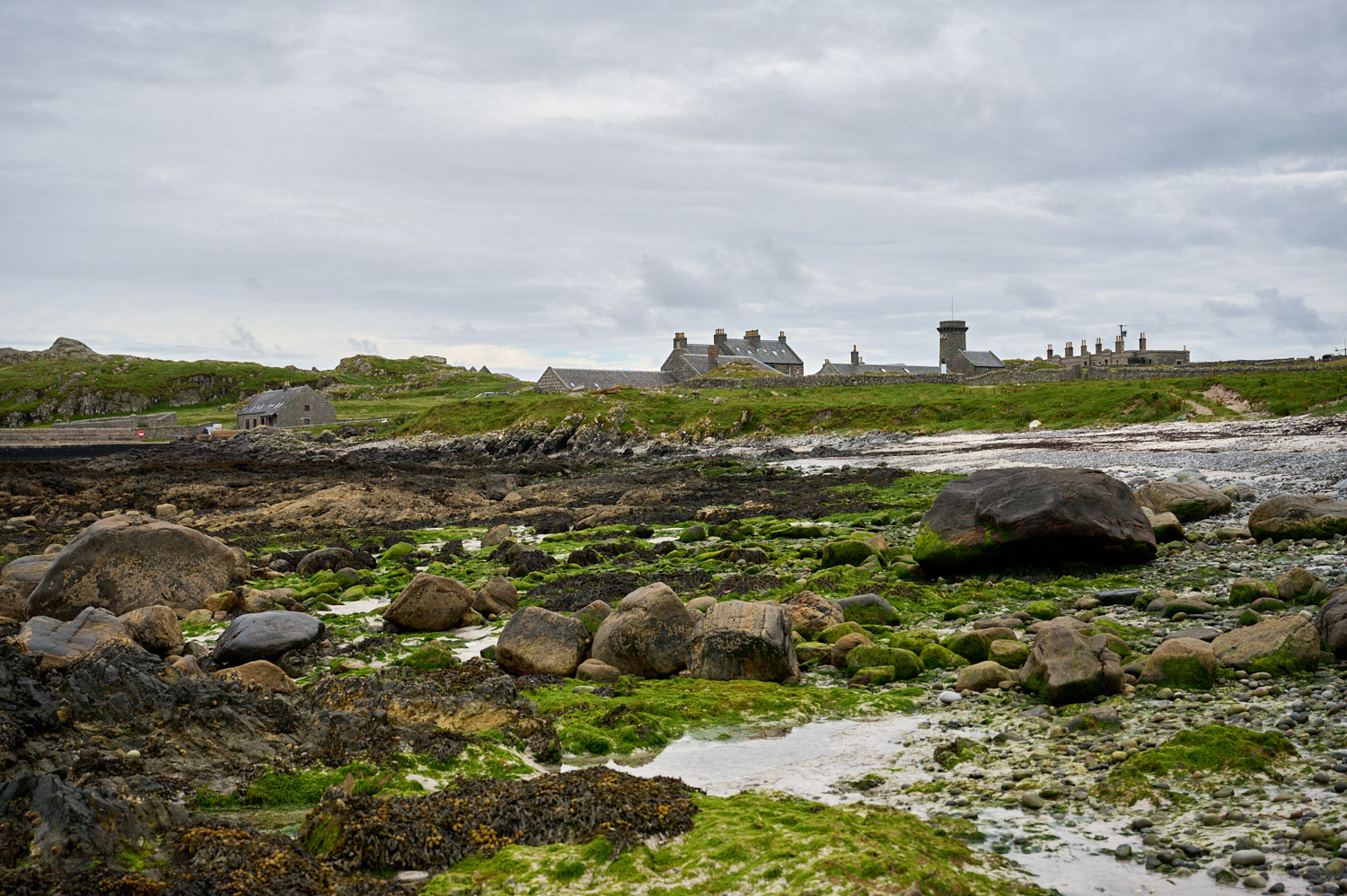
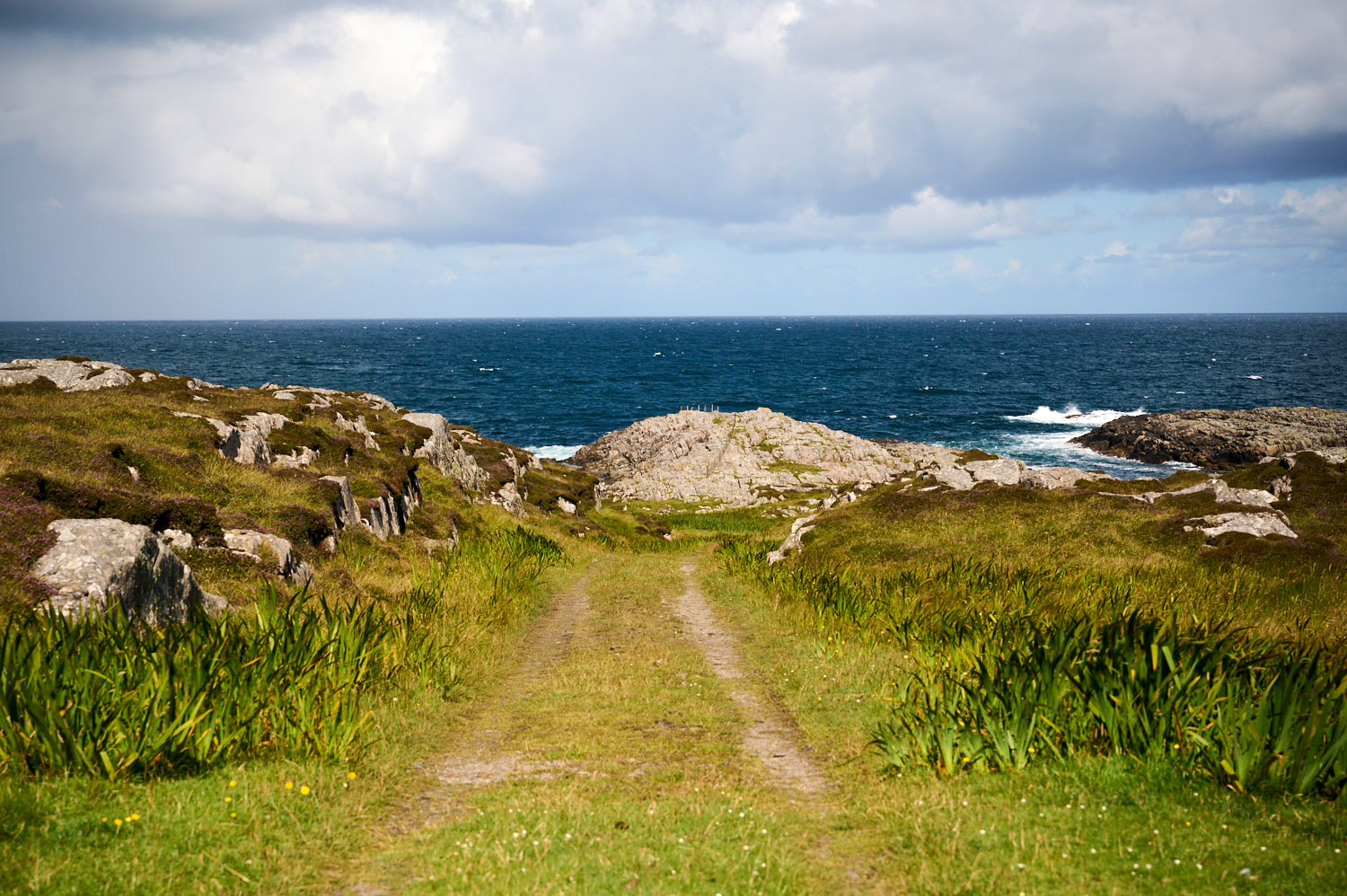

After visiting the museum in Hynish, I went for a little walk along the coast and then back to Hynish (and my car).





And back to the signal tower and the buildings of Hynish.



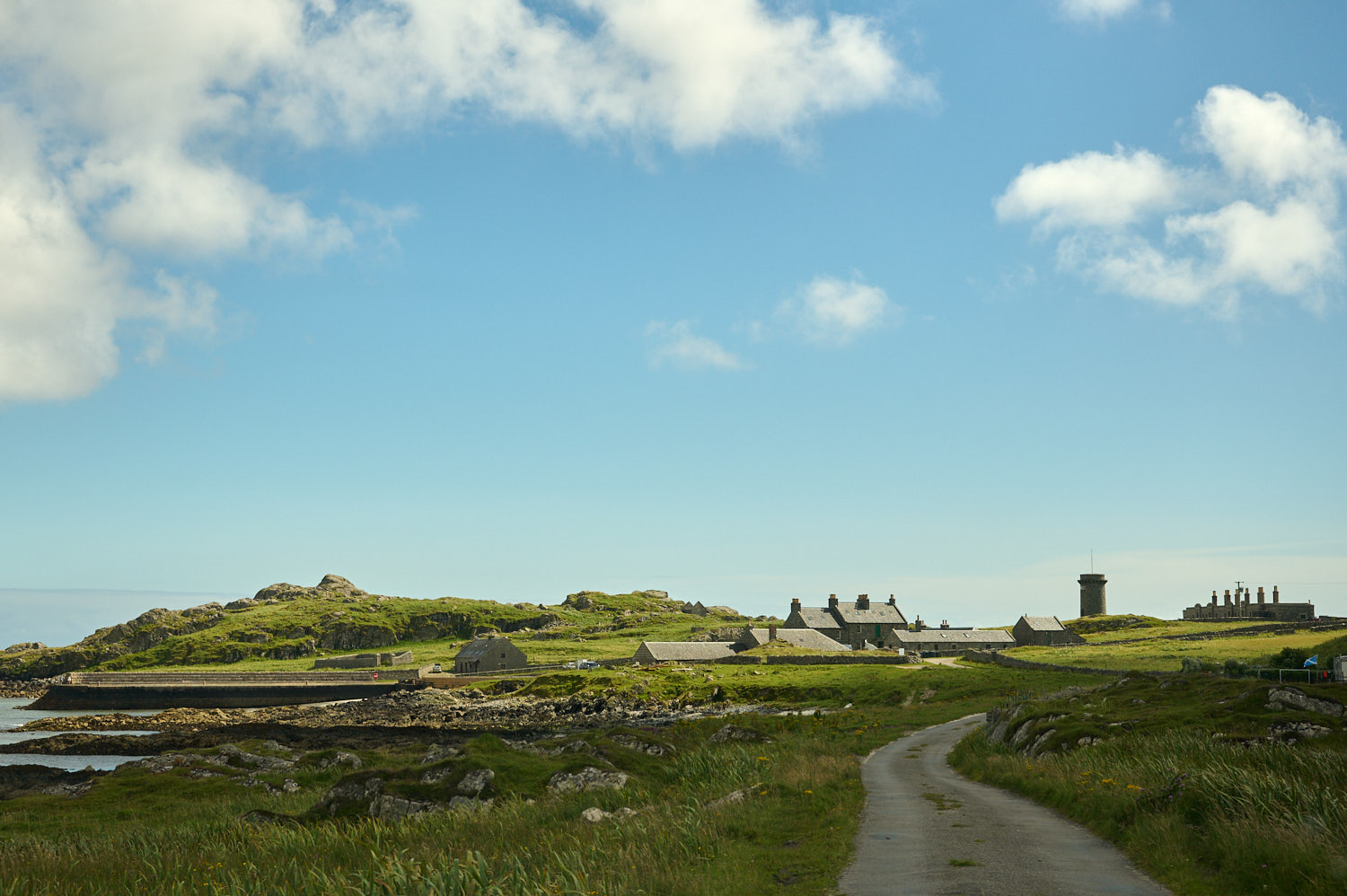
The reason Hynish exits lies 11 miles further out in the sea – the Skerryvoe Lighthouse, which I visited one year later one, in 2023. (Little spoiler)
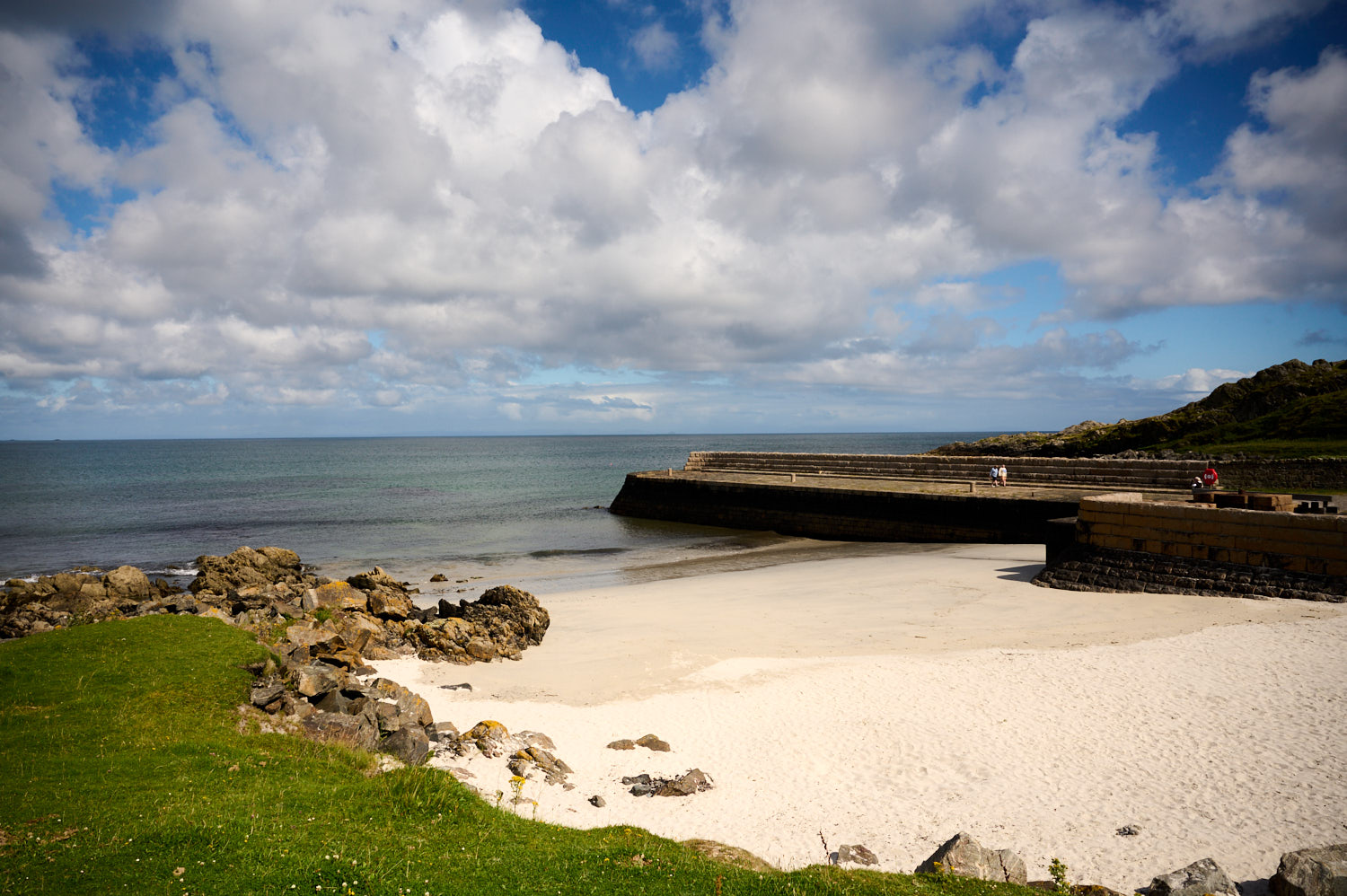
The buildings at Hynish were started in 1837 and comprised a dock, workshops and lodgings for those involved in the building of the Skerryvore Lighthouse.
Over 80 stonemasons worked here precisely shaping over 4,300 blocks used in the building of the lighthouse. In 1842 the Skerryvore Lighthouse was completed and in the following year the Hynish pier was extended to allow the lighthouse vessel to berth. (Isle of Tiree)
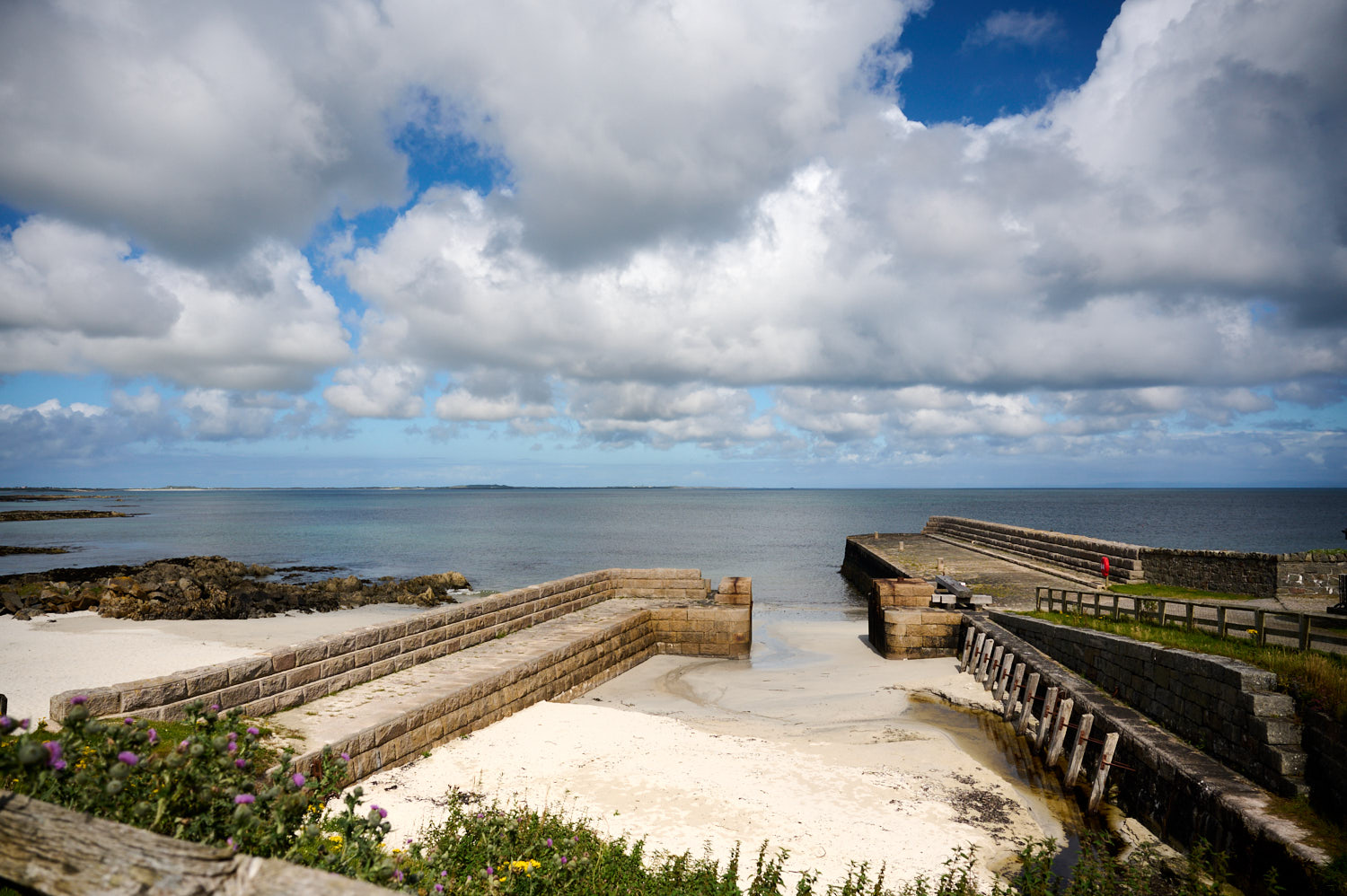
The dock was often filled with sand, so Stevenson designed a flushing system using water from a reservoir up the hill.
The lighthouse keepers had their quarters in the Upper Square and used walled gardens to grow their own produce.
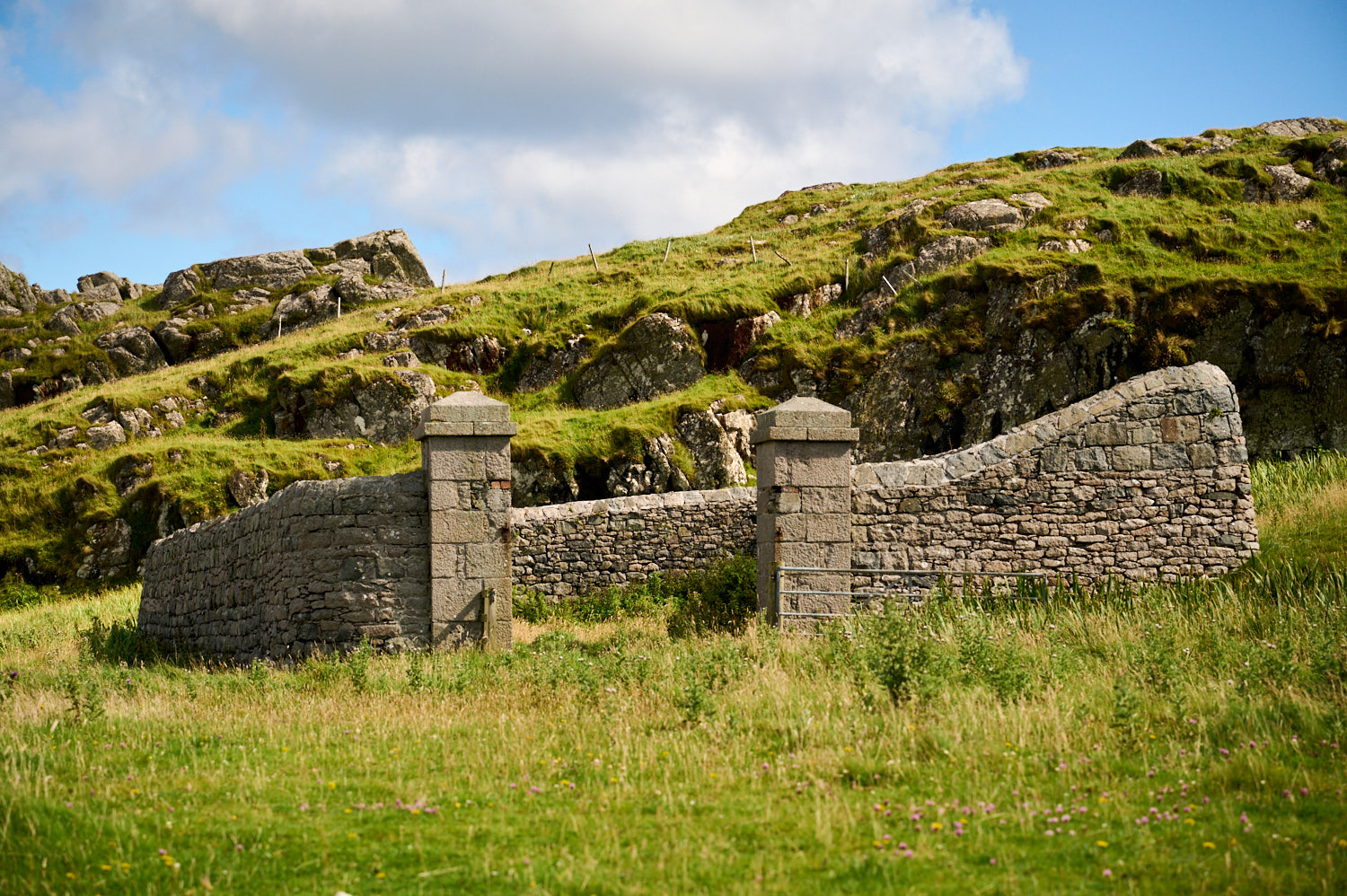
In 1987 the Hebridean Trust started to renovate the buildings and give them a new purpose. There are apartments, a museum about the Skerryvoe lighthouse, holiday accommodation, and a cafe.
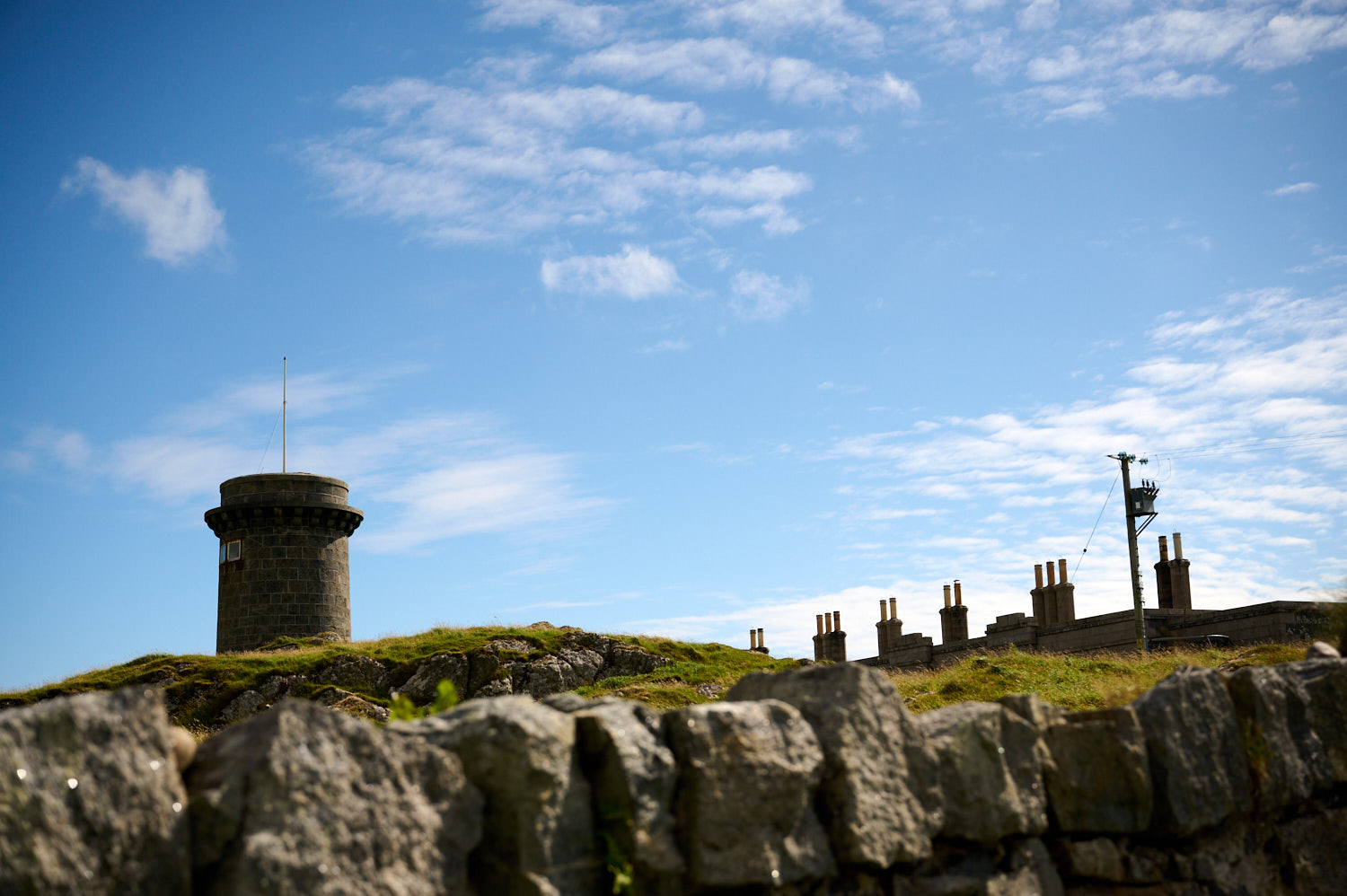
The former signal tower.
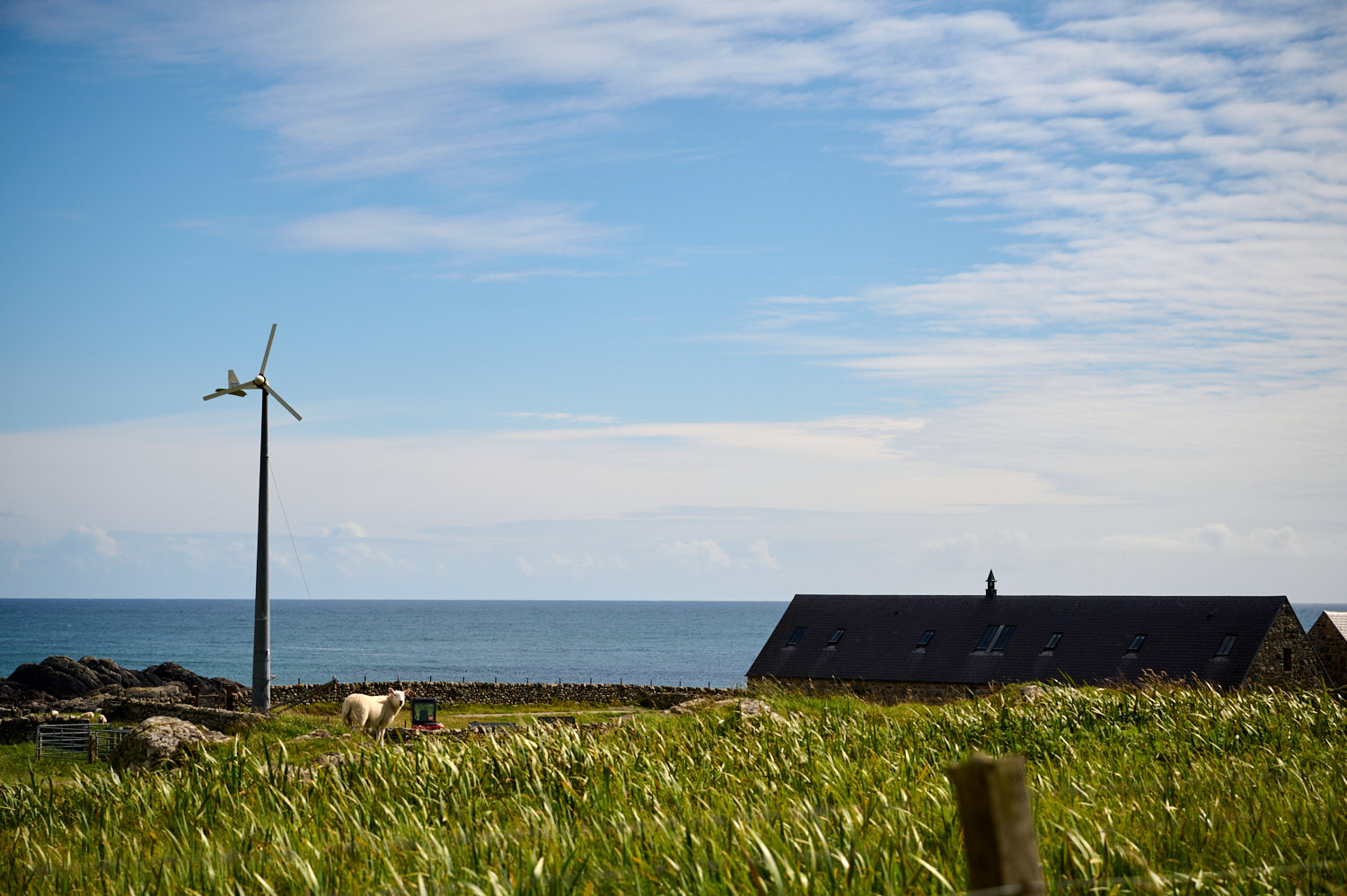
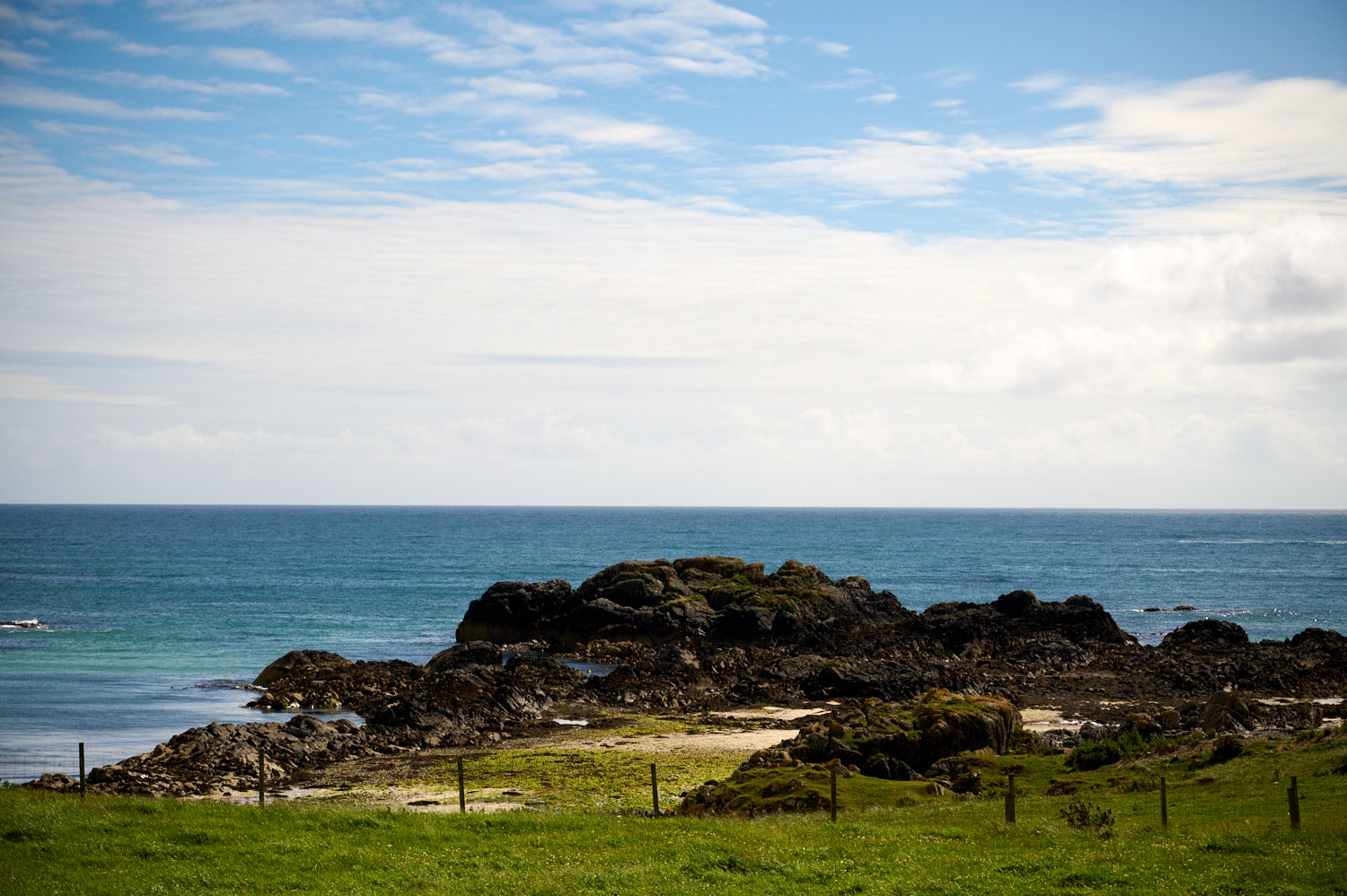
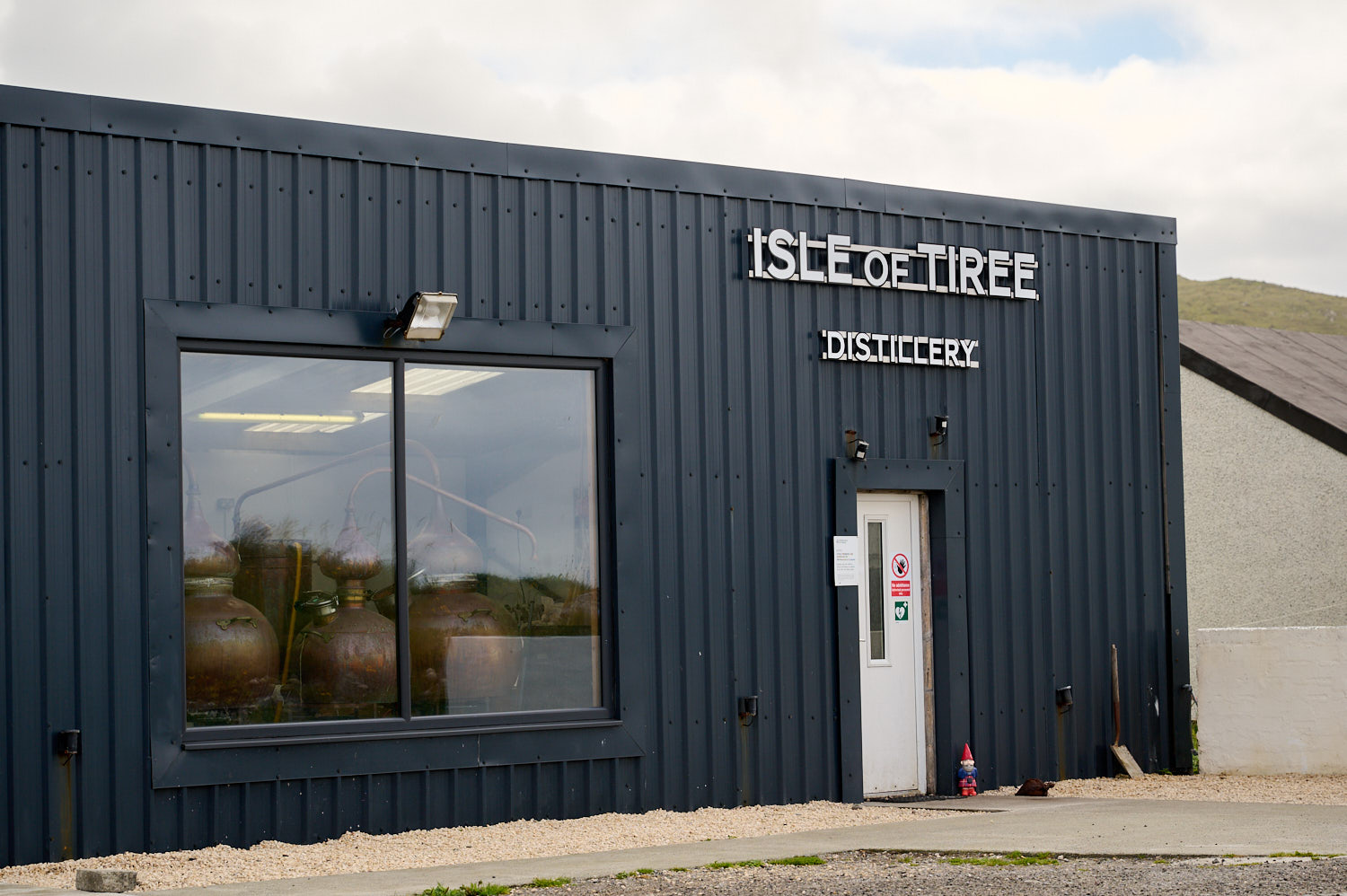
Let´s learn how to make gin! The Isle of Tiree distillery offers a gin school, and I had to try my hand at making my very own gin. I spent a fun afternoon with a few others, tasting and making gin.
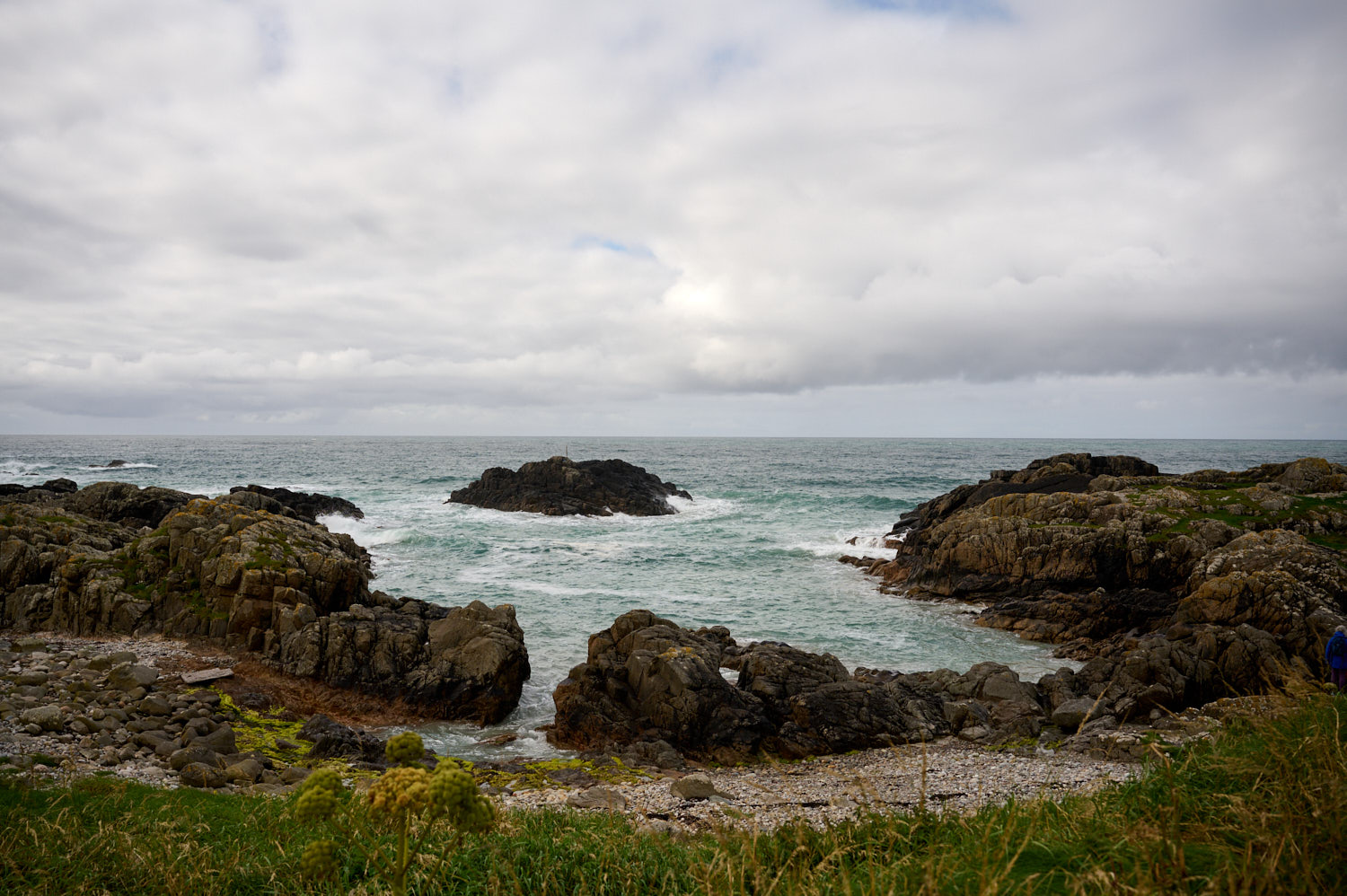
A beautiful view from the distillery.
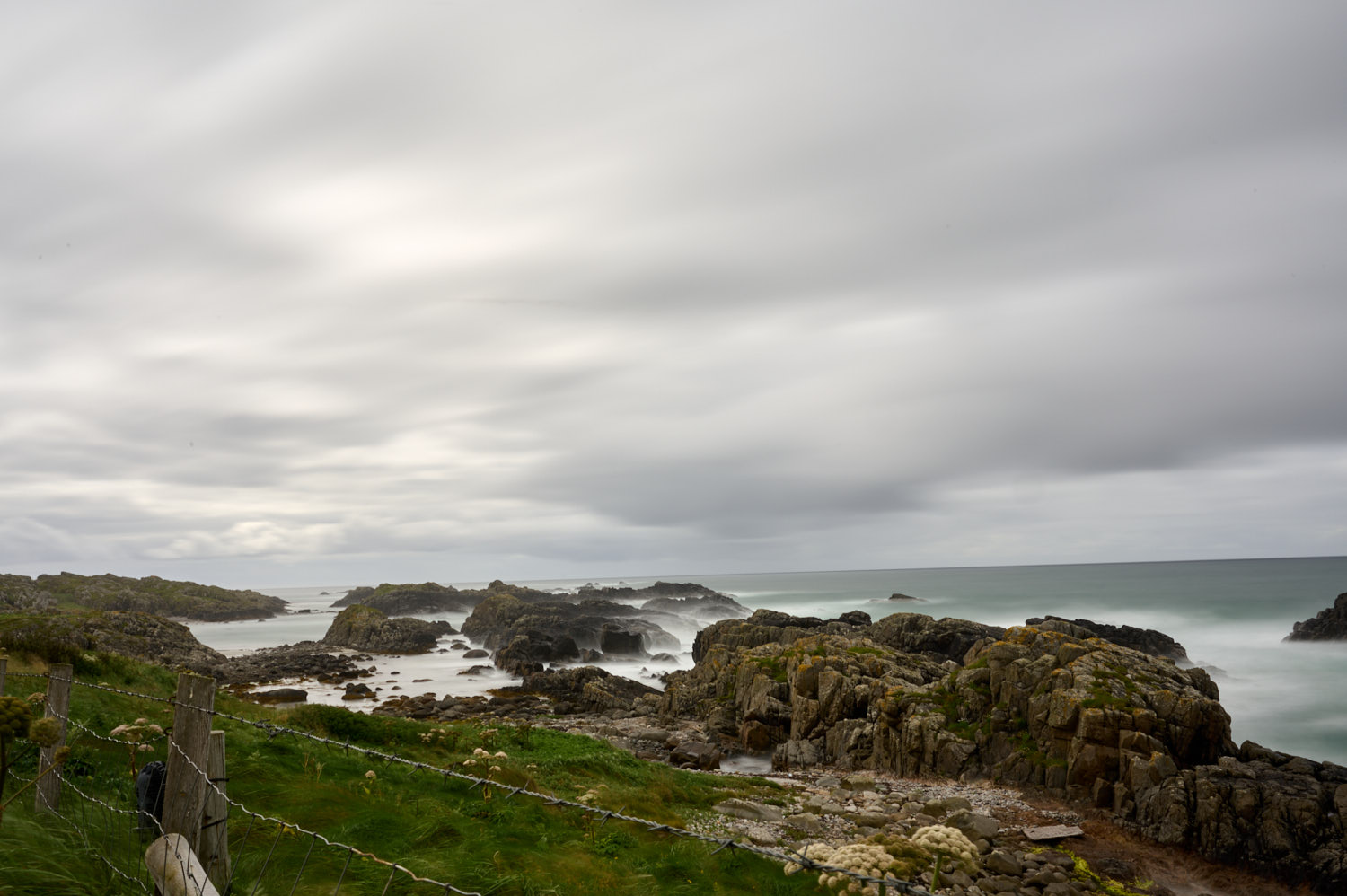
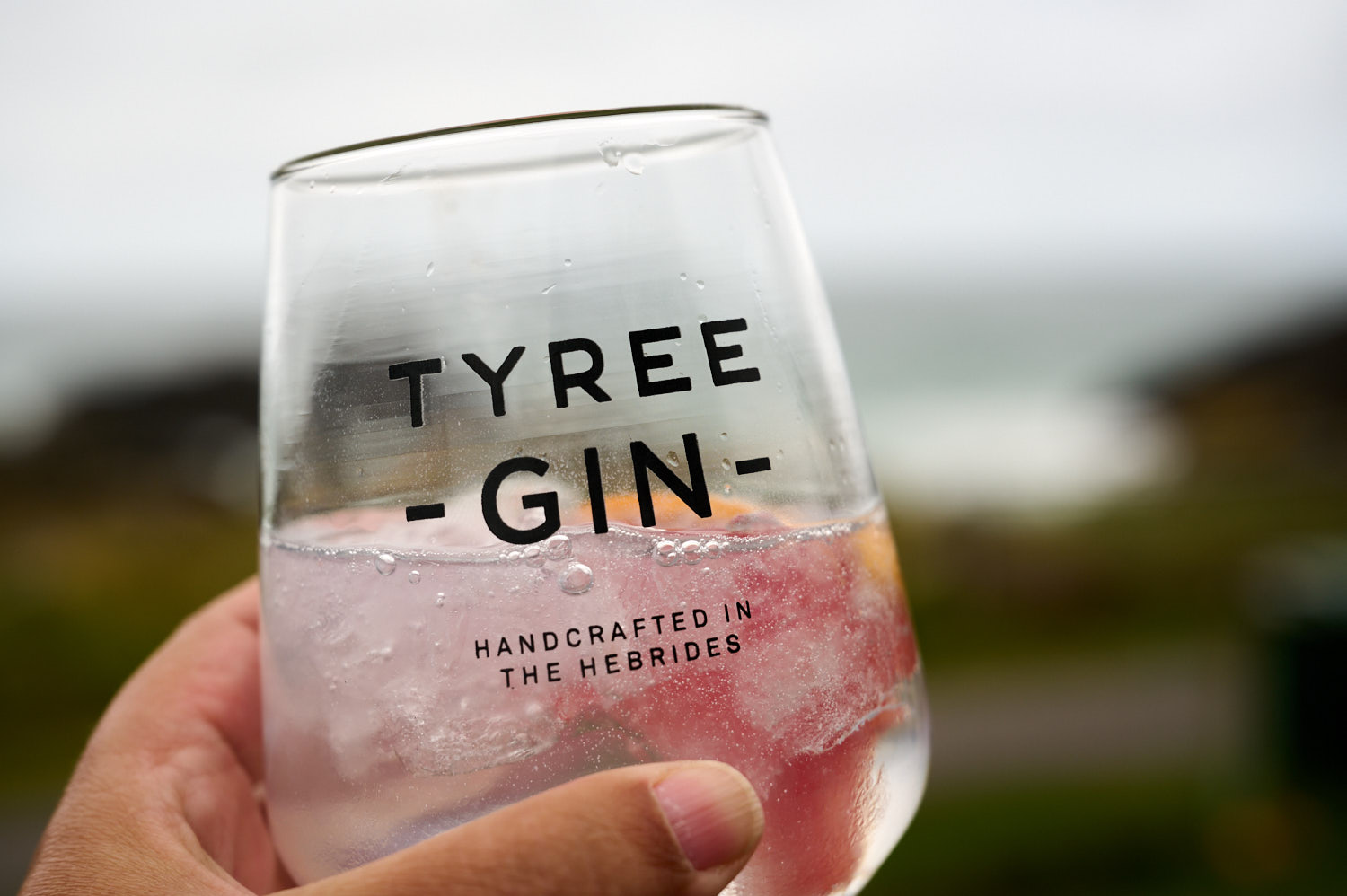
Slainté!
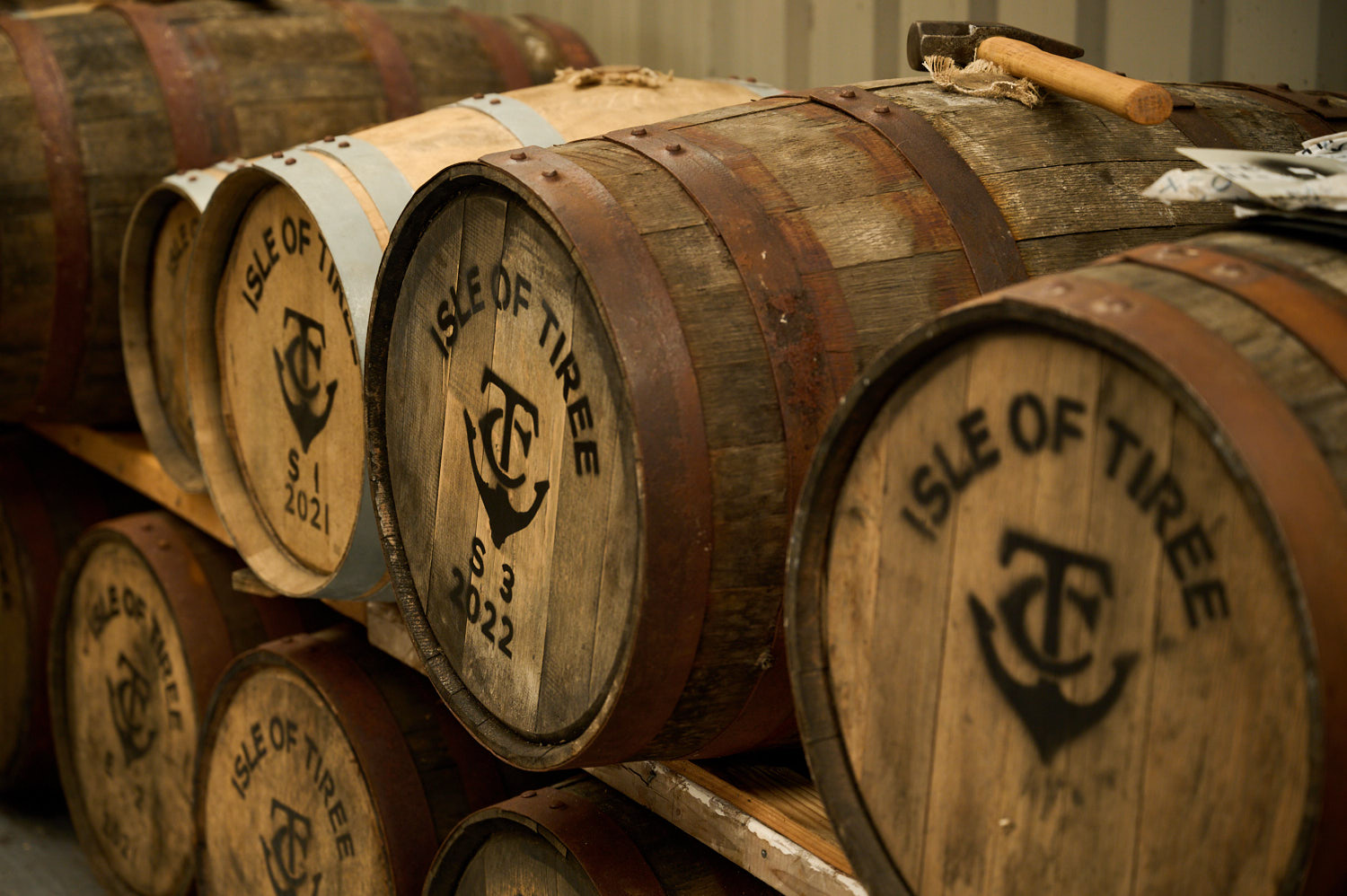
While our gin was “brewing” we got a little tour of the distillery. Sleeping whisky barrels.
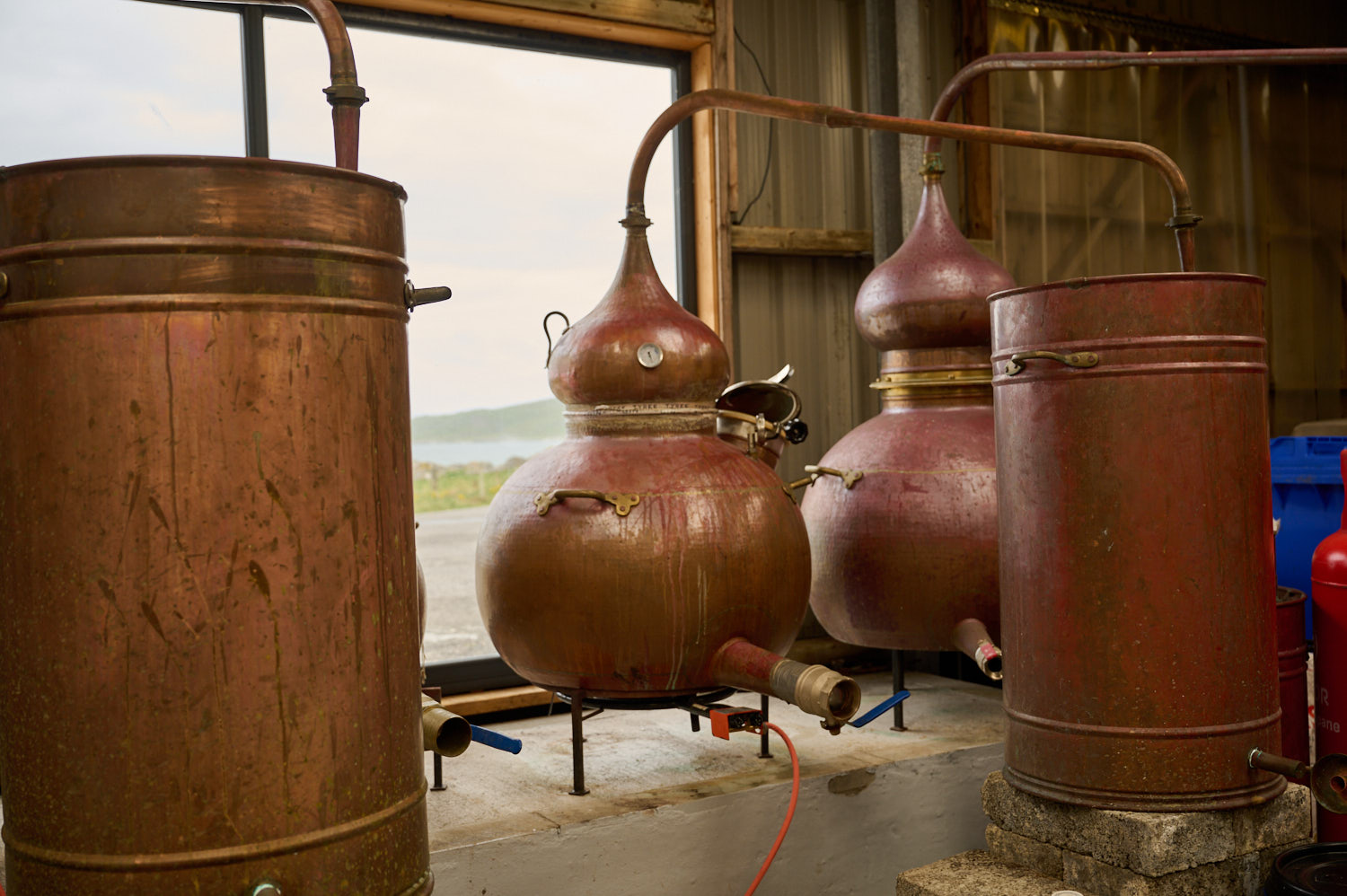
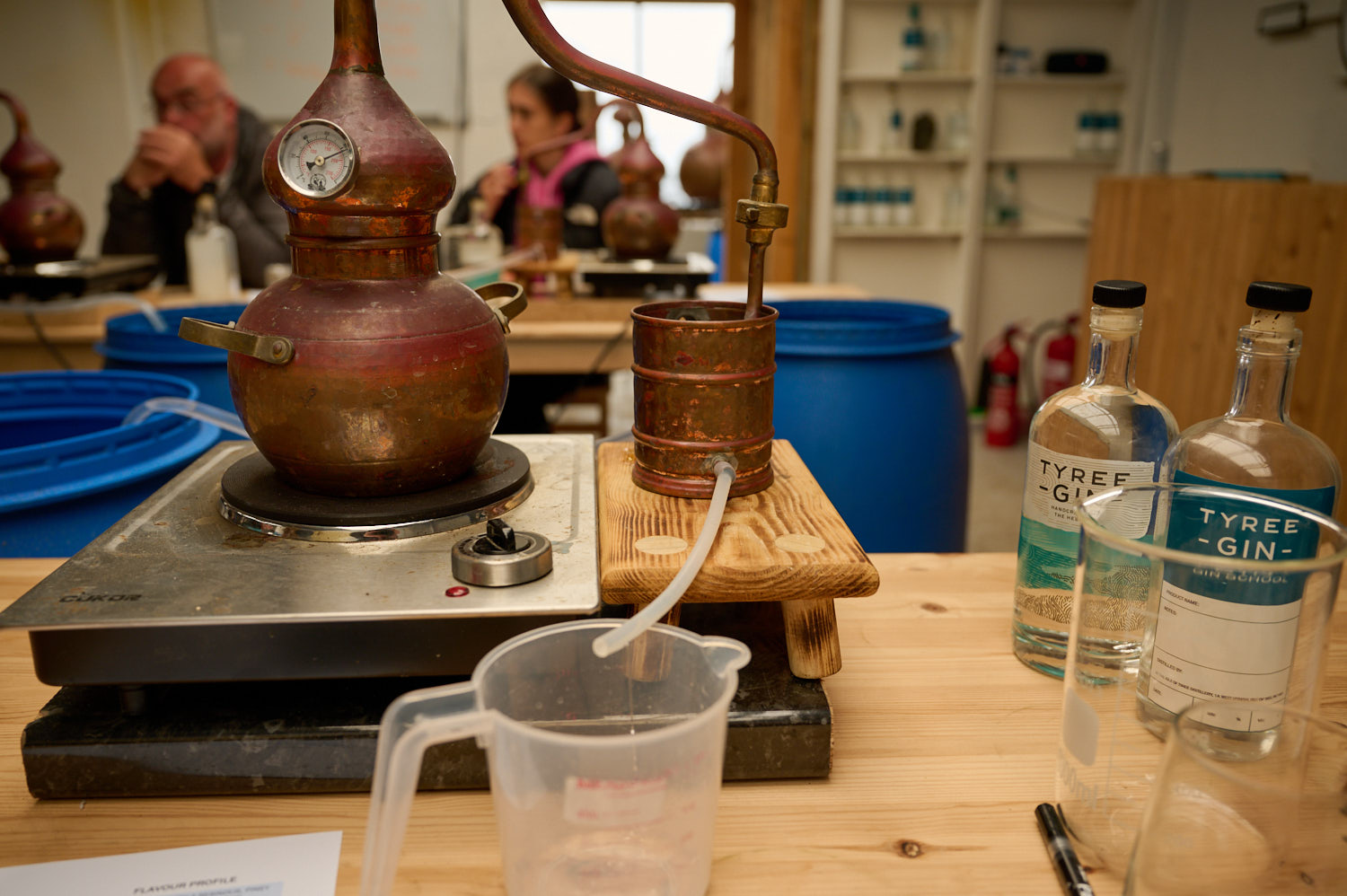
And back to our own little gin stations – it takes quite a while for the alcohol to distil and then needs to be combined with water at the right measurements.
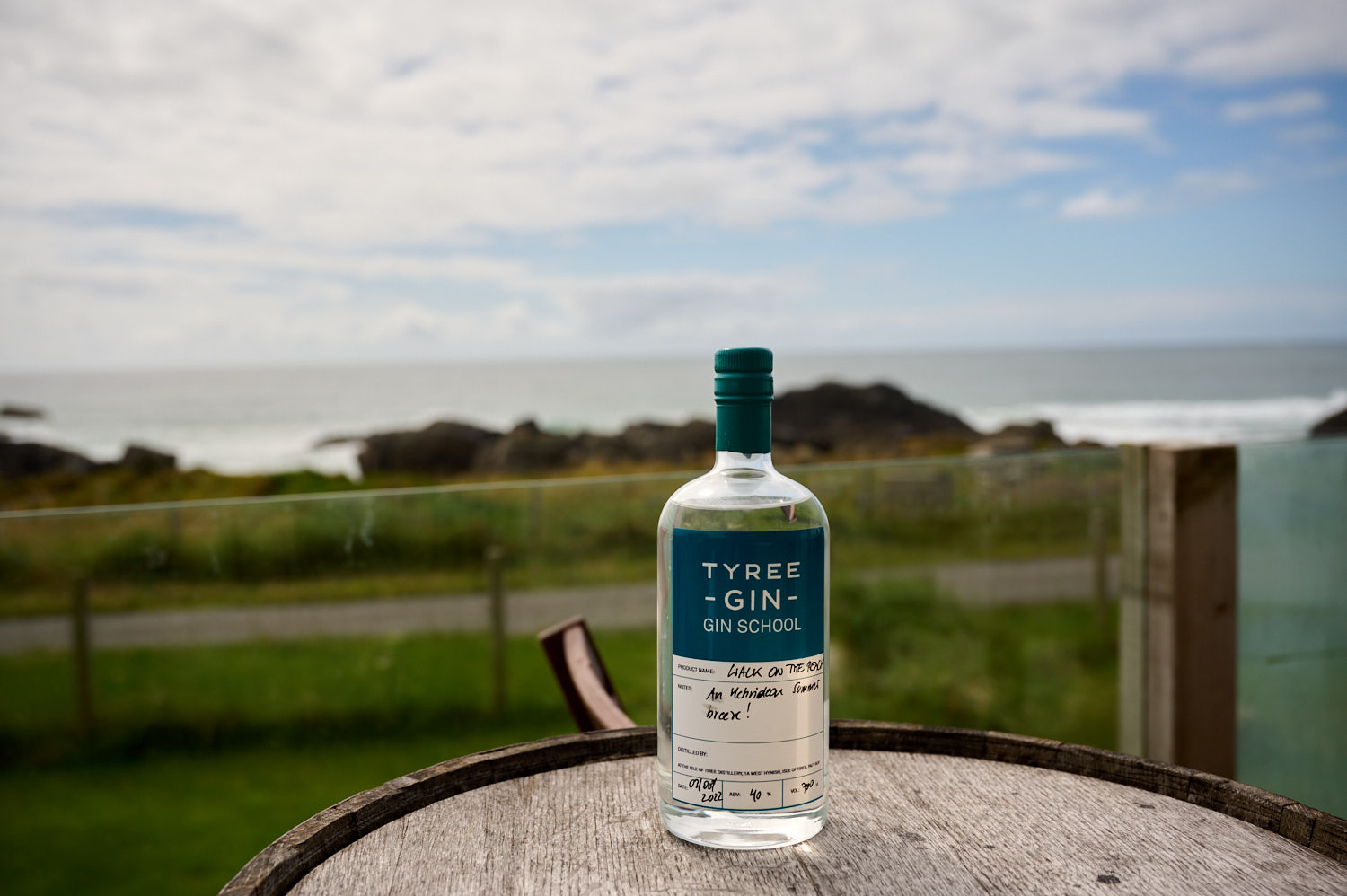
And my finished bottle – a Hebridean summers day!